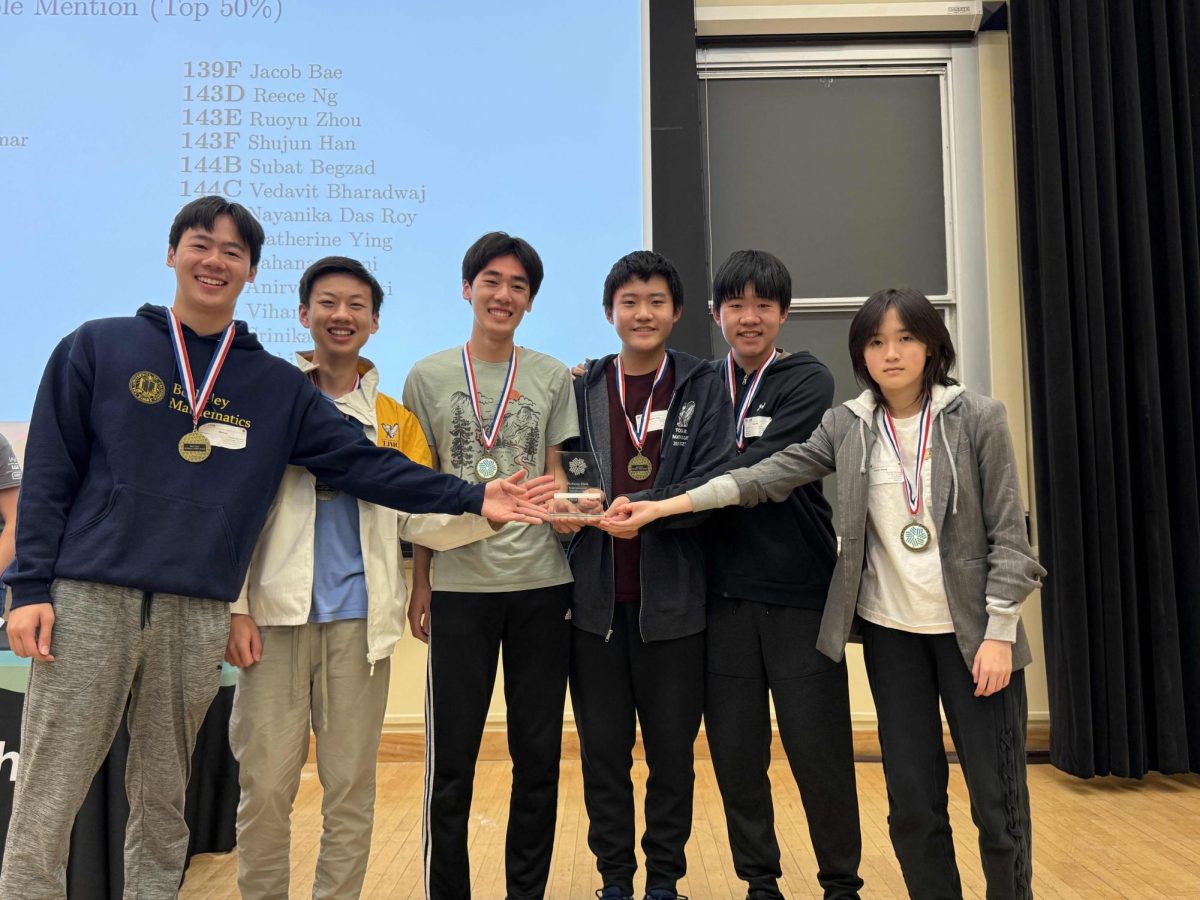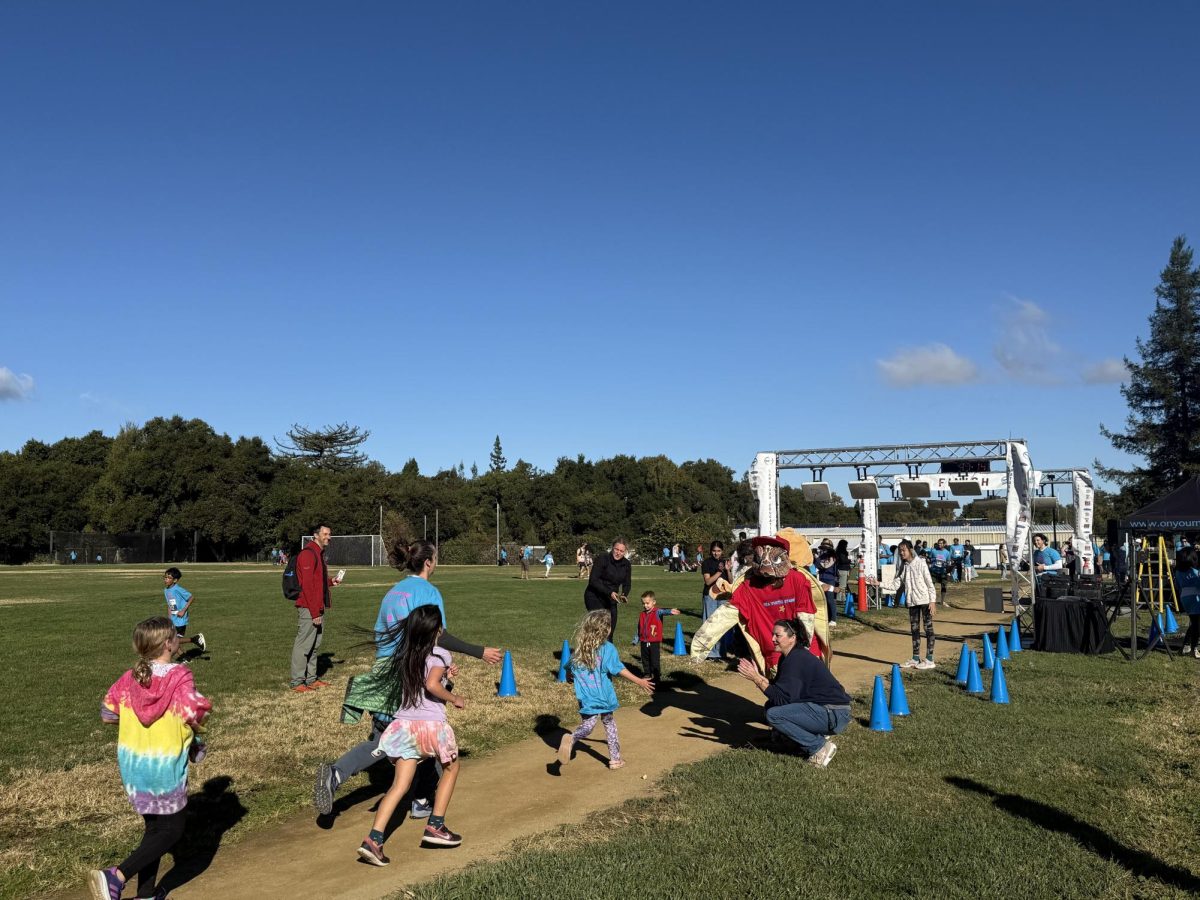The flare of a thousand red and gold fireworks lit up junior Raquel Boales’ eyes as she watched the Paralympic opening ceremony in Maracanã Stadium, Rio on Sept. 7. Giant cloth numbers tumbled down from all sides of the amphitheater as the audience roared a countdown.
As the procession of athletes headed to a nearby exit, Boales and a handful of Americans in front of her waved their flags. Boales was there representing her group, Synchronized Swimming Athletes with Disabilities (AWD).
Her mission was to campaign for synchronized swimming to be a Paralympic sport.
“To compete in the Paralympics would mean the universe to me,” Boales said. “By the time 2024 rolls around, assuming we have enough support and that everything is going well, synchronized swimming will be introduced in the Paralympics, which I hope to compete in.”
In order to add a sport to the Paralympics, AWD requires the cooperation of the sports federations from at least 25 countries. Despite the enormous task, Boales and her group have gained the interest and cooperation of over 20 countries in just two years.
Through the help of her mom Tina and president of AWD, Boales has traveled to six countries so far: Canada, Taiwan, Japan, Spain, Israel and Brazil. Boales also plans to visit Russia and Australia.
In these countries, Boales has participated in camps and exhibitions where she was able to help other disabled swimmers, while also working with coaches to develop better ways to help train. In addition, she has gone to conferences to spread the word about synchronized swimming.
While in Brazil, she went to a sports medicine conference in São Paulo, where she presented and listened to speeches from people from around the world. Following the conference, she performed at a livestreamed exhibition with teams from countries around the world, including Mexico, Canada and Japan.
“I performed my solo and team routine with my USA team, and also did a duet with a girl who only has one arm — a right arm,” Boales said. “She lives in Brazil, so when we were writing the duet, I actually wrote the routine here in the U.S. and we just talked over Facebook and performed it for the first time at the exhibitions.”
After saying goodbye to the other teams, Boales took a plane to Rio, where she attended the Paralympic opening ceremony and watched events and competitions for about three days before returning home.
While watching the other disabled athletes perform, she became even more determined in her efforts.
“Their willpower and abilities were exceptional beyond belief, and their 'disabilities' disappeared as soon as the timer started,” Boales said. “It was amazing to witness in person.”
While the journey ahead is still long and arduous, Boales is determined to see it through.
“I just want to see everyone with disabilities and special needs be given the same opportunities for sports and advancement like everyone else who is not disabled,” Boales said. Despite being diagnosed with Erb’s Palsy, a brachial plexus injury caused by damage to the nerves and tissue in her left shoulder, Boales developed an interest in synchronized swimming and began to train with the San Jose Angelfish at age 8.
Two years later, something extraordinary happened to her at the State Games of America when she competed in the novice category.
“Even though it was novice, it was still a hard category for me to be in because everyone I was competing against was able-bodied, and none of them had physical or cognitive disabilities,” Boales said.
But when they announced the winners in the category, Boales was shocked to hear her name get called for first place. Only 10 years old with two years of experience, Boales never dreamed of winning first. From that point on, she never looked back.
With confidence in her mission and the encouragement from her parents, Boales is working to be able to compete in the Paralympics one day in her favorite sport.
“Not only can I broadcast my talent and hard work at the highest level possible, but other swimmers like me can do the same as well,” Boales said.




























